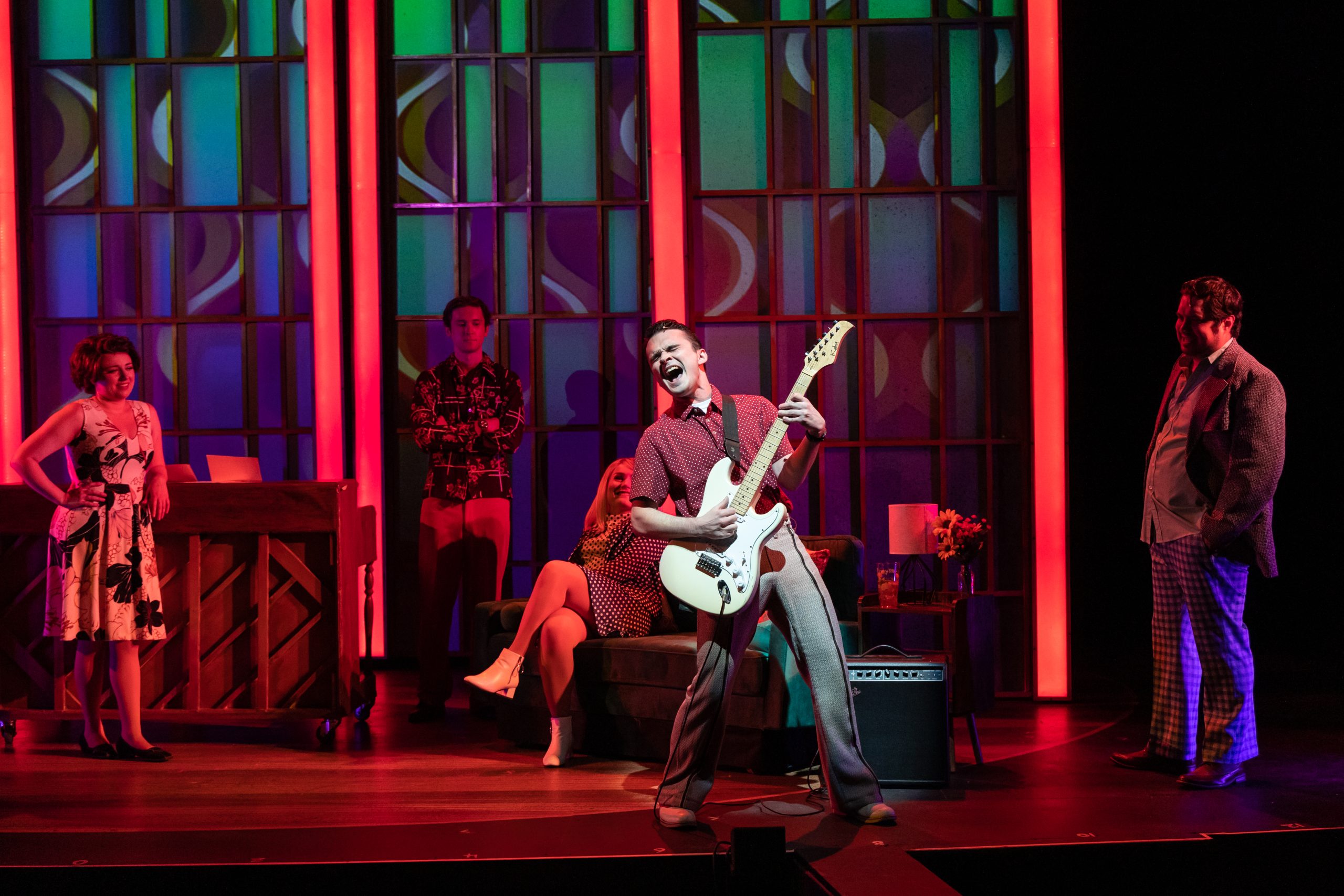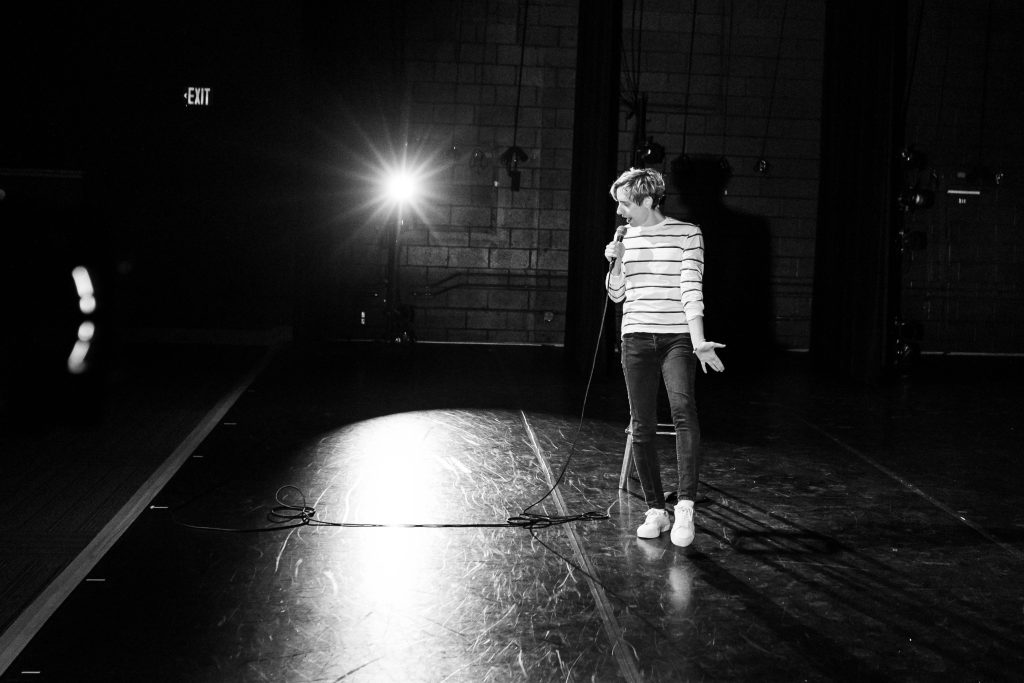
In the weeks leading up to the inaugural Boulder Comedy Festival, founder Zoe Rogers found herself grappling with a mix of anticipation and anxiety.
“At first, I was afraid no one would come,” Rogers admits. “We were supposed to do it in 2020, but like the rest of the world, we were postponed, so we began in 2021. Fortunately, we had many of the same performers as planned for 2020, and the event was a huge success. I am grateful to be a part of the loving, supportive Colorado environment that fosters talent and provides opportunities for one another.”
Rogers’ positive experience is a testament to the many details that need to align perfectly for a festival to succeed. Across Colorado, organizers of summer arts festivals face similar challenges, combining creativity and logistics to bring their events to life.
But what exactly does it take to pull off these vibrant cultural celebrations? To answer this question, Boulder Weekly talked to seven of the state’s top festival leaders in comedy, music and theater to learn about the delicate balance of preparation, budgeting and community engagement.
Year-round planning
Summer festival planning is often a year-round endeavor. Hiring contractors, fundraising and resolving issues like lodging and transportation for patrons and artists requires meticulous attention to detail and proactive thinking.

Credit: Matt Maenpaa
“We are always trying to plan three years out with play titles,” says Tim Orr, producing artistic director at the Colorado Shakespeare Festival (CSF). “We’ve usually zeroed in on titles with directors about 15 months prior to opening night. This extended timeline allows for a thorough selection process, ensuring that each show aligns with the festival’s artistic vision and logistical capabilities.”
Leaders must consider a wide range of factors when putting together their events. Orr mentions that “a combination of timeliness, relevance, intuition, personal taste, achievability and attempts at intelligent curation” guides CSF’s selection process.
It also involves navigating the tension between artistic integrity and commercial viability. Megan Van De Hey, artistic director of Little Theatre of the Rockies, describes the curation process as “looking for a magical unicorn, because it needs to be something both artists and audiences are excited about.”
Michael Querio, artistic director of Rocky Mountain Repertory Theatre, echoes this sentiment. “It’s a complicated process,” he says. “We need to present a well-balanced season that has something for everyone — the beginner, the tourist, the savvy theatergoer and the family vacationer.”
Crafty financing
Balancing these interests requires not only careful selection but also innovative budgeting strategies. While each festival has unique financial needs, there are common threads that connect their approaches to fundraising. For example, because ticket sales alone do not cover all expenses, most festivals rely on a combination of donations, grants, sponsorships and government support in addition to programming revenue to fund their operations.
“Our largest revenue source is donations from individuals,” says Durango PlayFest’s managing director, Mandy Mikulencak. “The next-largest category is grants, followed by sponsorships. Like many arts nonprofits, ticket sales make up the smallest part of our budget — and we plan for this. It’s always been a priority to keep ticket costs low because we believe theater should be experienced by everyone, regardless of their socioeconomic status.”
2024 Summer Festival Offerings
Creede Repertory Theatre
May 25 - Sept. 21
124 N. Main St., Creede
Featuring a diverse lineup including Baskerville: A Sherlock Holmes Mystery, Young Frankenstein, The Importance of Being Earnest, Prima’s Guide to Funerals, Boomtown, Maxim Conflict: Eternal Strife and Coyote and the Counting Game.
Rocky Mountain Repertory Theatre
May 31 - Sep. 28
800 Grand Ave., Grand Lake
A season of vibrant musicals includes Kinky Boots, The Music Man, Come From Away, Cabaret and I Left My Heart: A Salute to the Music of Tony Bennett.
Little Theatre of the Rockies
June 6 - July 28
University of Northern Colorado - Norton Theatre, Gray Hall, 1828 10th Ave., Greeley
Presenting Almost Heaven, Every Brilliant Thing and A Gentleman's Guide to Love and Murder on UNC’s campus.
Colorado Shakespeare Festival
June 8 - Aug. 11
CU Boulder - Roe Green Theatre, University Theatre Building
Showcasing classic plays including Macbeth, The Merry Wives of Windsor and Arden of Faversham.
Boulder Comedy Festival
June 19 - 23
Junkyard Social, Dairy Arts Center, Finkel & Garf, and Boco Ciders
A celebration of standup featuring performances by diverse comedians from Colorado and across the country.
Durango PlayFest
June 25 - 30
Durango Arts Center, 802 E. 2nd Ave., Durango
Featuring four new works: All That Remains by Richard Dresser, Circle Forward by Deb Hiett, Hop Tha A by James Anthony Tyler and Mrs. Einstein by Kathleen Cahill.
Colorado Music Festival
July 5 - Aug. 4
Chautauqua Auditorium, 900 Baseline Road, Boulder
Their extensive lineup of concerts includes Alisa Weilerstein playing Dvořák’s Cello Concerto, Green Eggs and Ham and performances of works by Beethoven and Mahler.
Keeping things affordable is another goal for most festival organizers. Many leaders say this has become more difficult as costs rise across the board. Elizabeth McGuire, executive director of the Colorado Music Festival, spoke extensively about the challenges her team faces in managing rising expenses without passing them on to patrons.
“The festival costs approximately $2.5 million, and expenses have been increasing exponentially,” McGuire says. “I want more people to be able to attend our festival, but I would like to see us on solid financial footing. The goal is for us to be mature as an organization and have a foundation of funding so we do not have to start from scratch every year.”
Operational challenges
Logistics can be one of the most daunting aspects of festival planning, particularly for those in remote locations. According to Kate Berry, interim artistic director and marketing director for Creede Repertory Theatre, simply getting people and materials to Colorado’s southwestern region can be “extremely challenging.”
“The Denver airport is five hours away,” Berry says. “The closest hospital is 40 minutes away. We have random snowstorms in May and shipping is crazy. We have to order a lot of things online because we can’t just run out to Target or Walmart. The closest Walmart is 70 minutes away, and it’s a smaller Walmart, so we depend on the postal service and carriers to get us stuff.”
Staffing and lodging are additional challenges. “We typically have a seasonal group of about 50 people,” says Querio, whose festival is held in Grand Lake. “It takes time and money to get them here. Once they are here, we have to provide housing. Our theater owns housing in this active summer tourist town for all 50 people; the costs to build and maintain the housing are enormous.”
Effective resource management is critical for ensuring that all aspects of the festival run smoothly, especially in areas where items are difficult to get quickly. These operational challenges are one of the reasons many festivals begin their planning processes early and work to build strong relationships with the locals.
Engaging the community
Connecting with the area each festival is located in not only fosters a sense of ownership and pride but also helps ensure strong support. That’s why many festivals’ marketing goals and strategies focus on community-building and attracting diverse audiences to scenic locations throughout Colorado.
“We’re proud of the economic impact we have on the summer economy for Grand Lake,” Queiro says. “We bring nearly 20,000 people to town each season, and we know we help to pump millions of dollars into the tourist economy of this small mountain town.”
Rogers agrees. She says focusing on grassroots efforts in addition to traditional online advertising has helped build community support for the Boulder Comedy Festival.
“I go to every farmers market and art walk, handing out cards to promote the festival,” she says. “We’d love to buy more digital ads, but ultimately, it’s tricky when you’re buying ads before any tickets have been bought, so we rely on community support.”
This hands-on approach is Rogers’ attempt to ensure the festival reaches a local audience and cultivates a devoted following.
“My philosophy has been that if you focus on delivering a quality experience, people will notice, and they will support you appropriately,” McGuire says. “It is a big, heavy lift financially, so we are working hard to grow our donor base and raise our profile nationally and internationally. We are uniquely positioned to expand, and proud to welcome visitors to the state.”
